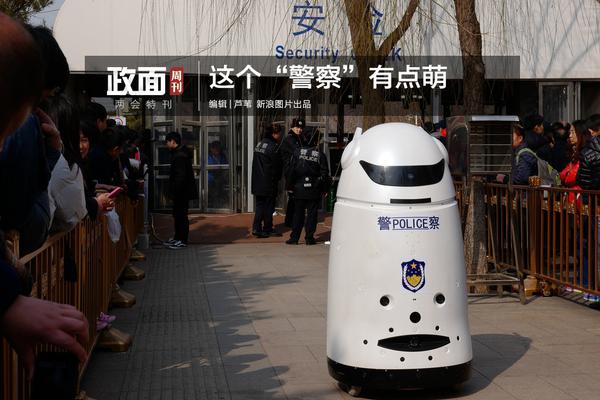
System error, also known as measurable error, is caused by some common causes in the process of analysis operation.
Random error: It is a mutually compensated error formed by a series of small random fluctuations of relevant factors in the measurement process. System error: refers to a non-random error. For example, the bias error that violates the random principle, the error caused by the registration record in the sampling, etc.
System error: also known as regular error, because its size and symbol do not change or change according to a certain law. Its main feature is that it is easy to eliminate or correct accidental error: also known as random error, because its appearance is completely random.
1. System error is caused by some imperfections of the instrument, limited measurement technology or insufficient experimental methods to ensure the correct experimental conditions and other reasons. For example, when the time of measuring the meter is stopped, the stop meter is inaccurate and slow. , the time interval of the measurement is always small. The random error is characterized by its randomness.
2. Accidental error: the error caused by the inaccuracy of the observer's reading. Features: Measurement results are large and small. System error: errors caused by inaccurate measuring instruments and imperfect experimental principles.
3. System error refers to a non-random error. For example, the bias error that violates the random principle, the error caused by the registration record in the sampling, etc. It makes the overall characteristic value too high or too low in the sample.
Finiteness: Under certain observation conditions, the absolute value of the accidental error will not exceed a certain limit. ( 2) Concentration: that is, the error with a smaller absolute value is more likely to occur than the error with a larger absolute value. ( 3) Symmetry: The probability of positive errors and negative errors with equal absolute values is the same.
Adventional error is also known as random error. The main differences from system error are as follows: different causes of occurrence. Random error: the reason for its occurrence is the influence of various unstable random factors in the analysis process, such as the instability of environmental conditions such as room temperature, relative humidity and air pressure.
The difference between system error and accidental error is that system error is inevitable.Free (but can be reduced by balancing friction and other methods), and accidental errors can be avoided by multiple measurements. System error refers to the inevitable error during the experiment. Accidental error refers to avoidable errors such as experimental operation errors.
Random error: refers to under the same conditions, due to various unpredictable accidental factors, different types of measured values of the same physical quantity are measured multiple times. Different degrees of error are called random error, also known as accidental error. System error: refers to a non-random error.
The main difference is that it has different properties, different causes and different characteristics, as follows: different properties, accidental error, accidental error generally refers to random error, which is a mutually compensated error formed by a series of small random fluctuations of relevant factors in the measurement process.
The difference between system error and accidental error is that unified error is inevitable, and accidental error can be avoided by multiple measurements. System error refers to the inevitable error during the experiment, and accidental error refers to the man-made and avoidable errors such as experimental operation errors. Error is an experimental scientific term, which refers to the degree to which the measurement results deviate from the true value.
System error: inevitable errors in experiments, such as frictional resistance, air resistance, and errors of the experiment itself, such as constant voltage when using power supply. Accidental error: measurement error, experimental operation error and other man-made and avoidable errors.
The system error is caused by some of the instrumentImprovement, limitation of measurement technology or insufficient experimental methods and failure to ensure correct experimental conditions occur. For example, when stopping the meter to measure the time, the stop table is inaccurate and slow, and the time interval of the measurement is always small. The accidental error is characterized by its randomness.
System error: Maintaining a constant or its change in the same measurement process is part of the predictable measurement error. Accidental error: the measurement error in the sequence of measured values under the same measurement conditions is uncertain, but subject to certain statistical laws.
System error is a kind of error caused by certain fixed causes in the analysis process. It is repetitive, one-way and measurable. That is, under the same conditions, it will appear repeatedly when the measurement is repeated, so that the system of the measurement results is high or low, and its numerical size also has a certain regularity.
Adventional error is also known as random error. The main differences from system error are as follows: different causes of occurrence. Random error: the reason for its occurrence is the influence of various unstable random factors in the analysis process, such as the instability of environmental conditions such as room temperature, relative humidity and air pressure.

1. The main difference is that it has different properties, different causes and different characteristics, as follows: different properties, accidental error. Accidental error generally refers to random error, which is formed by a series of small random fluctuations of relevant factors in the measurement process. The error of mutual compensation.
2. Different characteristics, system error, repeatability, one-way, measurability.
3. Random error is also known as random error. The main differences from system error are as follows: different causes Random error: the reason for its occurrence is the influence of various unstable random factors in the analysis process, such as the instability of environmental conditions such as room temperature, relative humidity and air pressure.
Casino Plus GCash login-APP, download it now, new users will receive a novice gift pack.
System error, also known as measurable error, is caused by some common causes in the process of analysis operation.
Random error: It is a mutually compensated error formed by a series of small random fluctuations of relevant factors in the measurement process. System error: refers to a non-random error. For example, the bias error that violates the random principle, the error caused by the registration record in the sampling, etc.
System error: also known as regular error, because its size and symbol do not change or change according to a certain law. Its main feature is that it is easy to eliminate or correct accidental error: also known as random error, because its appearance is completely random.
1. System error is caused by some imperfections of the instrument, limited measurement technology or insufficient experimental methods to ensure the correct experimental conditions and other reasons. For example, when the time of measuring the meter is stopped, the stop meter is inaccurate and slow. , the time interval of the measurement is always small. The random error is characterized by its randomness.
2. Accidental error: the error caused by the inaccuracy of the observer's reading. Features: Measurement results are large and small. System error: errors caused by inaccurate measuring instruments and imperfect experimental principles.
3. System error refers to a non-random error. For example, the bias error that violates the random principle, the error caused by the registration record in the sampling, etc. It makes the overall characteristic value too high or too low in the sample.
Finiteness: Under certain observation conditions, the absolute value of the accidental error will not exceed a certain limit. ( 2) Concentration: that is, the error with a smaller absolute value is more likely to occur than the error with a larger absolute value. ( 3) Symmetry: The probability of positive errors and negative errors with equal absolute values is the same.
Adventional error is also known as random error. The main differences from system error are as follows: different causes of occurrence. Random error: the reason for its occurrence is the influence of various unstable random factors in the analysis process, such as the instability of environmental conditions such as room temperature, relative humidity and air pressure.
The difference between system error and accidental error is that system error is inevitable.Free (but can be reduced by balancing friction and other methods), and accidental errors can be avoided by multiple measurements. System error refers to the inevitable error during the experiment. Accidental error refers to avoidable errors such as experimental operation errors.
Random error: refers to under the same conditions, due to various unpredictable accidental factors, different types of measured values of the same physical quantity are measured multiple times. Different degrees of error are called random error, also known as accidental error. System error: refers to a non-random error.
The main difference is that it has different properties, different causes and different characteristics, as follows: different properties, accidental error, accidental error generally refers to random error, which is a mutually compensated error formed by a series of small random fluctuations of relevant factors in the measurement process.
The difference between system error and accidental error is that unified error is inevitable, and accidental error can be avoided by multiple measurements. System error refers to the inevitable error during the experiment, and accidental error refers to the man-made and avoidable errors such as experimental operation errors. Error is an experimental scientific term, which refers to the degree to which the measurement results deviate from the true value.
System error: inevitable errors in experiments, such as frictional resistance, air resistance, and errors of the experiment itself, such as constant voltage when using power supply. Accidental error: measurement error, experimental operation error and other man-made and avoidable errors.
The system error is caused by some of the instrumentImprovement, limitation of measurement technology or insufficient experimental methods and failure to ensure correct experimental conditions occur. For example, when stopping the meter to measure the time, the stop table is inaccurate and slow, and the time interval of the measurement is always small. The accidental error is characterized by its randomness.
System error: Maintaining a constant or its change in the same measurement process is part of the predictable measurement error. Accidental error: the measurement error in the sequence of measured values under the same measurement conditions is uncertain, but subject to certain statistical laws.
System error is a kind of error caused by certain fixed causes in the analysis process. It is repetitive, one-way and measurable. That is, under the same conditions, it will appear repeatedly when the measurement is repeated, so that the system of the measurement results is high or low, and its numerical size also has a certain regularity.
Adventional error is also known as random error. The main differences from system error are as follows: different causes of occurrence. Random error: the reason for its occurrence is the influence of various unstable random factors in the analysis process, such as the instability of environmental conditions such as room temperature, relative humidity and air pressure.

1. The main difference is that it has different properties, different causes and different characteristics, as follows: different properties, accidental error. Accidental error generally refers to random error, which is formed by a series of small random fluctuations of relevant factors in the measurement process. The error of mutual compensation.
2. Different characteristics, system error, repeatability, one-way, measurability.
3. Random error is also known as random error. The main differences from system error are as follows: different causes Random error: the reason for its occurrence is the influence of various unstable random factors in the analysis process, such as the instability of environmental conditions such as room temperature, relative humidity and air pressure.
Free sports events uefa champions league app android
author: 2025-01-09 17:52 UEFA TV
UEFA TV
327.68MB
Check Hearthstone arena
Hearthstone arena
487.65MB
Check Casino Plus login register
Casino Plus login register
173.48MB
Check UEFA Champions League live
UEFA Champions League live
667.11MB
Check Casino Plus
Casino Plus
136.83MB
Check Europa League app
Europa League app
343.43MB
Check Casino redeem
Casino redeem
329.99MB
Check Bingo Plus stock
Bingo Plus stock
884.19MB
Check DigiPlus
DigiPlus
883.64MB
Check DigiPlus stock
DigiPlus stock
162.63MB
Check Casino Plus
Casino Plus
527.54MB
Check UEFA Europa League
UEFA Europa League
236.67MB
Check Casino Plus login register
Casino Plus login register
468.13MB
Check Walletinvestor digi plus
Walletinvestor digi plus
333.33MB
Check LR stock price Philippines
LR stock price Philippines
644.13MB
Check Arena plus APK
Arena plus APK
441.85MB
Check UEFA European championship
UEFA European championship
731.82MB
Check Casino Plus login register
Casino Plus login register
838.34MB
Check Casino free 100 no deposit
Casino free 100 no deposit
595.62MB
Check bingo plus update today Philippines
bingo plus update today Philippines
319.76MB
Check UEFA live free
UEFA live free
249.81MB
Check DigiPlus Philippine
DigiPlus Philippine
795.38MB
Check UEFA Champions League live
UEFA Champions League live
246.88MB
Check Casino free 100 no deposit
Casino free 100 no deposit
624.53MB
Check UEFA European championship
UEFA European championship
457.89MB
Check UEFA Europa League
UEFA Europa League
315.89MB
Check Free sports events uefa champions league app android
Free sports events uefa champions league app android
543.34MB
Check Hearthstone arena deck Builder
Hearthstone arena deck Builder
173.67MB
Check UEFA live free
UEFA live free
634.95MB
Check Hearthstone deck
Hearthstone deck
137.99MB
Check Casino Plus login register
Casino Plus login register
187.13MB
Check Bingo Plus stock
Bingo Plus stock
474.51MB
Check bingo plus update today Philippines
bingo plus update today Philippines
498.58MB
Check European Cup live
European Cup live
534.89MB
Check UEFA European championship
UEFA European championship
794.99MB
Check UEFA Europa League
UEFA Europa League
472.13MB
Check
Scan to install
Casino Plus GCash login to discover more
Netizen comments More
2633 Casino Plus GCash login
2025-01-09 17:36 recommend
1415 DigiPlus Philippine
2025-01-09 17:18 recommend
1850 casino plus free 100
2025-01-09 16:10 recommend
1262 UEFA Champions League live streaming app
2025-01-09 15:15 recommend
2318 PAGCOR online casino free 100
2025-01-09 15:15 recommend